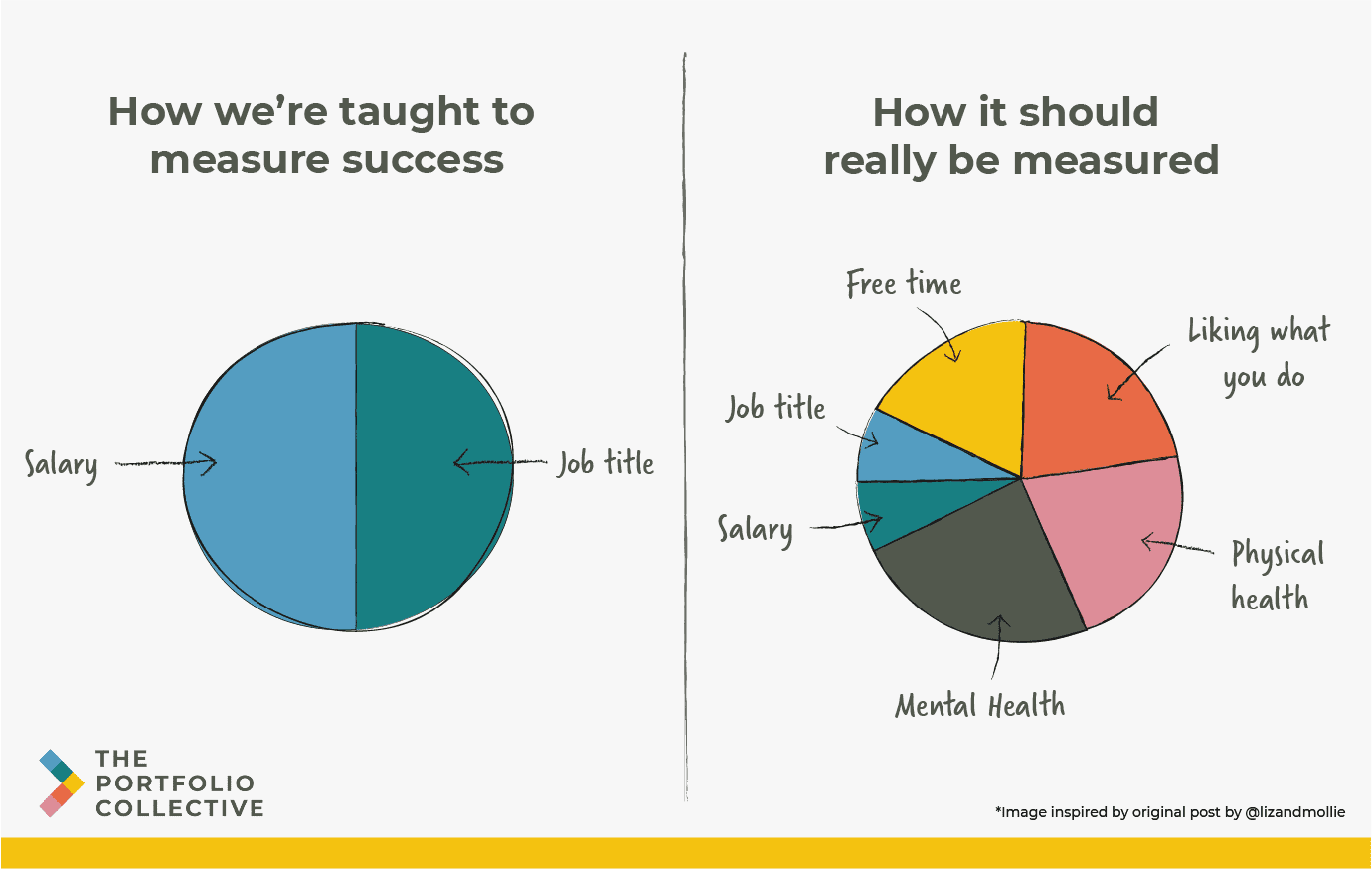Stephanie Dotto
We’re taught to measure our self-worth by how successful we are and how much money we make. In reality, it’s about so much more than that. It’s about how much you enjoy what you do. It’s about the values that shape every project you work on. More importantly, it’s about the uniqueness you bring to the table – the little details that make your work second to none.
For portfolio professionals, our businesses are, in fact, ourselves. True, you may outsource some of your work to help scale your offerings, but ultimately what you’re selling is your brand, your services, and your talents and expertise.
Fortunately, you can learn to look past the superficial and start to appreciate everything that makes you and what you do so valuable – your work ethic, your experience, your creativity and innovation. It just takes a bit of self reflection and dash of confidence to see clearly.
Targeting your true value will earn you more money
Most portfolio professionals tend to place an emphasis on benchmarks when setting rates – things like what their services are worth compared to market standards and previous salaries. What about all the other elements that make your business unique?

When your self-worth hinges on out-competing others, you can become more anxious and self-critical, which ultimately impacts the way you price your services. We all come head-to-head with Imposter Syndrome at some point in our careers, especially when the calendar is looking a bit bleak. You just can’t let those doubts dictate your sense of value. Otherwise, you could be drastically undercutting yourself by charging less than you deserve.
The next time you’re determining your fees for a service or project, try to see the whole picture – not just what you’re producing, but how you’re producing it and why what you offer is exceptional.
Consider the following basic inputs when calculating the lower level for your next quote:
- Current market rates
- Overhead and expenses
- The client’s budget
- Any additional value your skills and experience bring
- Your client success rate
Then, think about reasons you might need to increase this price further, such as:
- Your track record with this client (vs their risk in choosing someone new)
- Your early availability (especially if they are in a hurry)
- Your superior knowledge of their company/ product/ services/ organisational nuances
- Your unique skills, qualifications, licences
- Your superior ability to collaborate with the other people/ teams involved
- Your alignment with their company values and mission
- The client’s lack of alternatives
Each of these can be a reason to put your quote up, in some cases meaningfully.
Don’t let Imposter Syndrome get in your way
Every portfolio professional struggles with the weight of setting rates at some point or another. Newly independent professionals worry that they’re charging too much. Some experienced professionals fail to recognise when they’re actually charging too little. It’s a delicate balance; one that takes a bit of research and savvy to get right.
Of course, it doesn’t help when you lose out on a job because your quote was too high. Your immediate reaction is to think you’ve done something wrong; that you’ve miscalculated your worth. But don’t let that nagging voice of doubt infect your sense of self. The fact of the matter is that some clients just aren’t right for you.
70% percent of people suffer from some form of Imposter Syndrome during their lifetime. That’s just part of being human. The trick is to recognise it and squash it before you let it dictate your self-worth.

The four most common excuses people use for not charging what they deserve are:
- I’m already having trouble getting hired, so I don’t think I should be charging more.
- Times are tough and I don’t want to overcharge businesses that might be struggling.
- I’m scared I won’t be able to find people who are willing to pay what I want to charge.
- I don’t really know what my work is worth.
When you break it down, what these excuses really portray is a deep sense of insecurity and an inability to articulate the outcomes your work will achieve. You need to own your differentiation and take pride in the fact that what you do is unique. Once you figure that out, you’ll learn to price with confidence.
Always celebrate the things that make you unique

Confidence is absolutely essential when you’re pitching for any sort of business. The client wants to trust that you know what you’re doing. The more assured you are in your own capabilities, the easier it will be for you to make meaningful connections that can turn into long-term professional relationships.
Stop and think about everything that makes what you offer different from your competitors. Ask yourself: Why should they hire me rather than someone else? If you don’t know how to answer that right away, there’s a bit of work to be done.
In order to pinpoint your unique strengths, you need to first:
- Identify how you work and what that brings to each project. What values and beliefs do you integrate into everything you do? How much time do you take to get to know each client? If you’re struggling to find out how your services are different, it may mean that you need to do a bit of upskilling to help you stand out.
- Learn to articulate your “why”. What drives you to be successful? Why did you become an independent portfolio professional in the first place? How does your story impact your business? This all influences the quality and outcomes of your work.
- Develop stronger boundaries. You don’t need to say yes to every job that comes along. Learn to be picky and try to align yourself with organisations that share your values. That, in turn, will make for a stronger, more cohesive portfolio.
- Always ask for feedback. Each job provides you a new opportunity to grow. Learn to understand your strengths AND your weaknesses. Then figure out how to improve those weaknesses and fortify those strengths.
Just imagine how powerful a more self-assured version of yourself can be
Picture this: you walk into a pitch with shoulders back, head high, and your mind buzzing with a thousand different positive outcomes you can provide this client. You know your work is the best value for money and you know they’ll see it too. That’s because you take pride in your job and you know your value.

No matter where you are in your portfolio career, nothing beats the sensation of knowing that you’re comfortable in your own skin. Pay attention to the way you treat yourself after every win and every fail. Are you constantly nitpicking at each flaw? Or are you focusing on what you’ve learned and how you can apply that to everything you do?
Remember, true confidence builds over time. No one expects you to be 100% assured of your skills from day one, but if you put the time in to truly understand where your value lies you’ll be in a better position to build and scale your business.
Still not sure what you should be charging? We break it down into easy-to-follow steps here.
Think this sounds like the right path for you? Come along to our monthly Community Welcome Call for new members to find out what a portfolio career could look like and how The Portfolio Collective can help you take those first steps towards professional success – and don’t forget to connect with our community!



